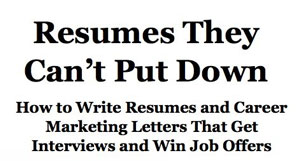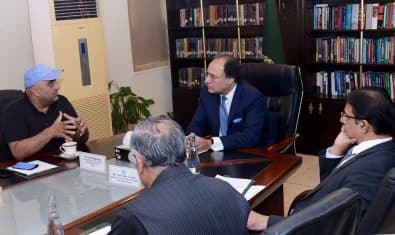By Jameel Ahmed Memon
We are starting a new series of Career Counseling, in which we will Jameel Ahmed Memon will discuss certain phases of career and how you can perform well in with your Career.
Today’s post is about how to write an effective and winning CV.
Is your CV a “yes”, “no”, or a “maybe”?
The manager recruiting for the position you’ve applied for will be faced with an enormous pile of CVs, which they will put into 3 piles; “yes” – interview, “no” – reject, and “maybe” – come back to later if the “yes” pile fails to deliver. For your CV to be put into the “yes” pile it must very clearly state the skills you have to offer.
It’s important to remember that we’re talking about technical recruitment and our clients therefore want to see technical skills. The recruiting manager may have only a matter of seconds to initially scan your CV, so the skills must be immediately apparent. How can you achieve this?
- Put the technical skills in bold. Simple, but immensely effective.
- Use bullet points to draw the reader’s eye to the important area of your CV.
- Put the most relevant experience first.
The most effective way to demonstrate technical skills is to provide a breakdown of the projects you’ve worked on. Remember that a project should comprise the following pieces of information:
- Title
- Timescales
- Number of staff involved
- Technology used
- Technology you used
- Your role
- What you actually did
Sell Yourself
Writing “I was an analyst programmer” does not do you justice. Far more effective is:
“Accounting Project – 6 months, team of 5I worked as a developer on a complete rewrite of an Accounting application. The software was written in VB6 with a SQL Server database using an ODBC and linked to a back end Mainframe running MVS. My role required me to speak to users covering initial requirements and then design the screens. I also talked to the database designer regarding the Entity Relationship Diagram and became involved in writing SQL stored procedures. The majority of my time was spent coding in VB5 using AD02, and I also gained exposure to COM and DCOM. The last month of the project was spent testing the software using SQA Team test.”
Providing this type of breakdown for 3 projects you’ve been involved in will ensure that you submit a CV that tells the reader exactly what you did. If what you’ve done is what the reader wants, then your CV will be put into the “yes” pile
CV Do’s:
- Be explicit when stating facts, employer should have no questions.
- Use bullet points to make your CV more concise and easier to scan.
- Include ALL of your contact details – name, address, home and mobile telephone number and email address (you’d be surprised how many people forget!)
- Set out the information under clear headings.
- Keep it truthful, concise and jargon-free.
- Keep it simple – when it comes to producing the ideal curriculum vitae remember that “Less is More”
- For experienced professionals, job responsibilities should be detailed, explained in paragraphs if required, but easy to read.
- Use dates consistently when talking about qualifications and experience. Start with the most recent and work backwards.
- Keep your CV to no longer than 1 – 2 pages if you are just starting your career, 2 – 3 pages if you are seeking mid-management position and 3 – 4 pages if you are seeking senior management positions.
- Use a spell check and ask someone to read through it before sending. Spelling mistakes make you look careless and inaccurate.
- Use present tense for current jobs and past tense for previous, keep it consistent
- Include your availability (e.g., ‘immediately available’ or ‘4 weeks notice’)
- Keep it factual – avoid any use of opinions
- Use a font size that is large enough to read!
- Make it clear on a covering letter or email which job you are applying for.
CV Don’t’s:
- Repeated use of “I” is hard on the eye – drop it
- Stay away from flowery language, fancy fonts and brightly colored paper – let the content do the talking
- Don’t use a humorous or inappropriate email address such as “[email protected]”. This may make a recruiter smile but won’t get you an interview!
- Do not use jargons, acronyms or abbreviations that are not well known in the sector. Remember that your CV may be read by HR who may not know these.
- Don’t include irrelevant facts – a potential employer will not be interested in how many children and grandchildren you have!
- Time gaps on your CV give the impression that you have something to hide. If you have been made redundant, and spent 2 months looking for a new job, this is fine. If you have taken a career break or gone traveling – say so!
- Phrasing which reads negatively has no place on a CV e.g., but, although, however, despite, nevertheless, etc
- Repeats of bullet points are a waste of valuable selling space!
- Post or fax CV’s only when absolutely necessary or if you are asked to do this. Email is now the accepted standard and these tend to be dealt with first.
- Include your current employer as a referral at your peril! (Unless you don’t want them to know you are looking elsewhere!)
- Do not include a photograph unless it is a requirement by the company.
- Exaggerating your experience will cause you problems later on. Interviews are designed to weed out fibbers!
- If you speak a foreign language, don’t embellish your level of fluency – GCSE French does not make you a ‘fluent’ speaker.
Jameel Ahmed Memon is Working in CS&O (customer Services and Operations) Department of Orange Pakistan (a france telecom group of companies) on their Network Managment System. He also contributes his analytical views with various Print and Online Magazines. He can be reached at memon.jameel @ gmail.com



























Since some people use Resumes (which are shorter – usually one page) and some use CVs (3-4 pages)
Do you think it would count against you if you submit a resume instead of a cv for a job opening?
A lot of career counselors in the US force you to keep your resume to max one page unless you have 15 years of professional experience.
Resumes make more sense as they’re more concise, so you’re forced to be very specific and to the point. And I’m sure that a recruiter with 500 applications doesn’t go through and read all 3 pages x 500 …. he probably scans through them.
What do you think ?
Mr aamir is right that it totaly depend upon few factors like company, job you are applying, situation and employer..
The reason to write seperate CV for every vacancy is that you are required to provide all details that match the job description of vacant post.
Regards
Dear Jamil Assalam O Alaikum,
I am Ghufran Ul Ahad From N.W.F.P. Please Can You send me a Made Sample of any CV ???
this is my E-mail Address. [email protected] and this is my Contact Number .. +923459511051
Please send me yours, i will review it for you. it would be better.
I think c.v is good for you are talent information.
assalal-o-alaikum….sir i am Shafique Ahmer from Hyderabad.
Can u send me a sample of cv.
Waiting for your reply…
Thanx
Thanks a million. That is interesting seeing
Hi there! Quick question that’s entirely off topic. Do you know how to make your site mobile friendly? My site looks weird when browsing from my iphone4. I’m trying to find a theme or plugin that might be able to resolve this issue. If you have any suggestions, please share. With thanks!